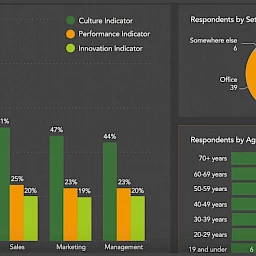The world of work is changing. Younger generations of employees are striving to join companies and are turning the requirements for leadership upside down. A talk with youth researcher and consultant Simon Schnetzer about cross-generational cooperation and the demands on leadership to retain employees.
Spaces have been proven to contribute to the way people feel. How do working environments must be designed to be attractive for the younger generations?
What young people expect from the world of work is fun, purpose and safety, as well as building good relationships with colleagues. This is regardless of whether the space is digital or physical. The atmosphere of workspaces is a key factor in being perceived as an attractive employer. That is because spatial design plays a significant role in whether I feel comfortable and look forward to meeting my colleagues. Well-being spaces that enable social interaction generate fun at work and are perceived positively by younger generations. Companies should therefore definitely create space for interaction and well-being in their offices.
What is necessary for good intergenerational cooperation to succeed in companies?
I often run generation workshops. It is astonishing that working generations have much more in common than one might think at first glance. But of course there are also differences in terms of values, attitudes and expectations. Take punctuality, for example. Young and old sometimes have very different understandings of how binding it is to keep appointments. And here is the question: What is the communication culture like in the company? Is it possible to address a controversial issue openly? Because wherever there are areas of friction in organisations, good communication is needed. After all, understanding is built through communication. In the end, the solution to conflicts resulting from generational differences is always compromise. Companies are therefore well advised to offer opportunities for constructive and critical interaction with each other.
How does good leadership work in intergenerational teams? And how well are managers prepared for this?
Good leadership creates a framework or opportunities to talk openly about problems and conflicts and offers organisational ways to find solutions. Intergenerational interviews, for example, promote team exchange and transparently disclose different perspectives. Tolerance for others and a better understanding facilitate compromise and defuse conflicts. Younger generations of employees are often less tolerant and do not simply put up with things if they do not suit them. They talk more openly about what bothers them and demand more than they did in the past. Unlike younger managers, older ones often find it difficult to accept this new way of communicating with employees. Some managers certainly have some catching up to do when dealing with younger generations of employees. But coaching can help. Another leadership issue is to keep up good storytelling in terms of employee loyalty. The use of social media has increased reflection, for example, on the decision to choose an employer. Young people, even in their working lives, are always asking themselves whether the status quo was their best decision. Whether young people stay with the company is being decided on a daily basis. Leadership today, if it wants to bind people, must tell good stories and constantly refresh this story with positive aspects.
What kind of corporate culture do young people feel comfortable in?
The question cannot be answered clearly. There is not one youth. On the one hand, young people want to be treated as equals and to be able to participate. On the other hand, there are also many young employees who are happy when leadership explicitly communicates what is needed in the job and when a task is well done. Young people do not want to be bossed from above and wish to get regular feedback on themselves and their work. This requires an environment or culture that promotes open communication, feedback and appreciative exchange.
The fluctuation rate is much higher among younger generations than among older employees. What are some measures that companies can implement to better retain younger generations? You also state in your posts that “employee loyality is the better recruiting”.
Employee expectations change according to the phases of life they are in. I like to ask companies questions like: When is work no fun for you? Regularly getting employees on board and checking how companies can improve can strengthen loyalty. But also, managers formulating tasks in such a way that their importance and the value contribution of the individual employee becomes transparent can strengthen the sense of belonging to the company. The more fun, meaning and exchange there is, the stronger the binding forces can be.
Simon, thank you for the interview.






